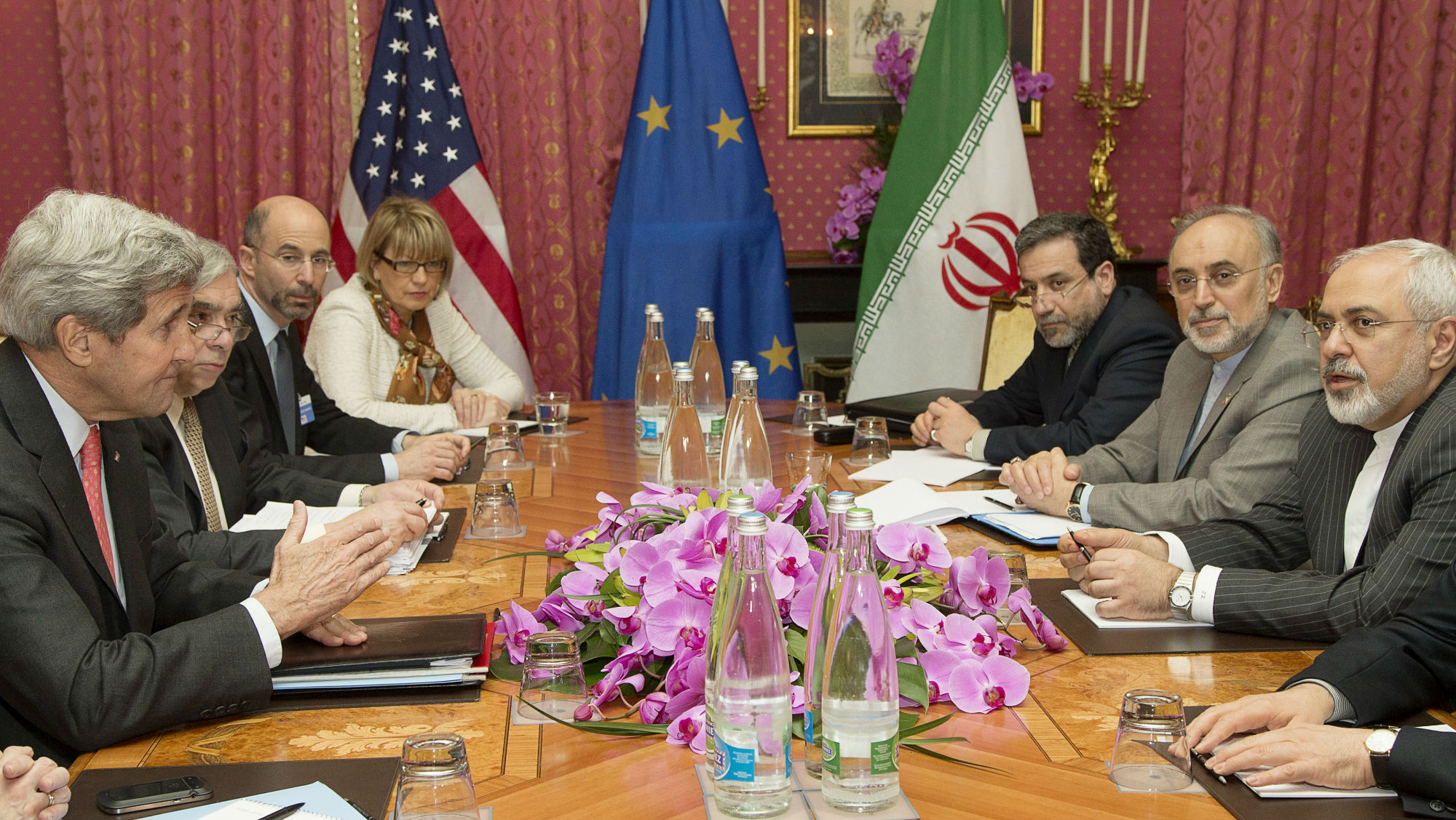Originally produced on Oct. 9, 2017 for Mauldin Economics, LLC

By George Friedman
For over two decades, the American response to North Korea’s pursuit of nuclear weapons has been to seek a diplomatic solution that would give the North Koreans an incentive to abandon their quest. The North Koreans agreed to suspend production of nuclear material, took the money and other incentives, and then proceeded to develop nuclear weapons anyway. This policy of diplomacy, concessions, and betrayal lasted through the administrations of Bill Clinton, George W. Bush, and Barack Obama, and has now been handed to the Donald Trump administration.
The story with Iran is somewhat similar. Iran, the US, the EU, China, and Russia negotiated a deal in which the Iranians agreed not to develop a nuclear weapon in exchange for the lifting of sanctions. It is unclear whether the Iranians have truly discontinued their nuclear program, but they assuredly have continued to develop missiles that could deliver nuclear weapons to targets.
The US claims that the development of these missiles constitutes a problem worthy of new sanctions; Iran counters that the missiles are not intended to carry nuclear weapons. Either way, Trump is on the verge of declaring that the Iranians are not complying with the agreement and imposing new sanctions and other measures.
A Contract’s Real Value
This is hardly unique to international relations. How often has each of us negotiated an agreement only to find that the other side interprets its meaning differently than we do? Sometimes there is genuine confusion; sometimes there is a deliberate attempt to gain an advantage. In international relations, sometimes the market conditions have changed, or sometimes the relative strength of the signatories has changed.
Whatever the reason, there are those who regard a signed contract as the beginning of the negotiating process and not the end. The outcome frequently rests less on the facts and more on how important the issue is to each side and how deep their pockets are. In business and in diplomacy, a contract’s value rests in the ability to enforce it.
And yet in business, there is normally the option of litigating the matter in court. In international affairs, there is no place to litigate except in some international courts, where the law is unclear and enforcement of the ruling depends on the willingness of both parties to accept it. If the issue is important, then no one will concede its outcome to the judgment of a third party. Nations live, for the most part, in the state of nature, where life is nasty, brutish, and short, as Thomas Hobbes put it. There is no political entity with the power and will to enforce agreements that nations don’t want enforced. When individuals or businesses need to enforce an agreement, they can go to court; in the case of nations, they usually must resort to war.
Like going to court, going to war is a risky business. No matter how strong your case or your military, the outcome is very much in doubt, and the price may turn out to be more than the solution was worth. US history since World War II is filled with such examples.
If the risk involved in going to war is too high—militarily, financially, and politically—then there are two choices. One is to walk away from a potential deal and let nature take its course. The other is to sign a deal, knowing that the other side is likely to cheat (and perhaps that you yourself are likely to cheat). The difference between a deal and no deal becomes much less stark when viewed this way. The deal exists only as long as both sides believe in it.
Flawed Arguments
If the Iranians want to build a nuclear weapon, they will do so with or without an agreement… unless the agreement is so enticing that they prefer its terms to nuclear weapons. Alternatively, the nature of these agreements is such that they can take the benefits and then build the weapon anyway, as North Korea has done.
Diplomats and lawyers would argue that a deal is always better than war or litigation, but reality is more complicated. In the case of North Korea, the US faces the stark choice of accepting North Korea as a nuclear power, or waging a war in which it would have many disadvantages. The US might win, but that isn’t certain. Whether victory is worth the cost is even less certain.
The US now has the same choice to make with regard to Iran. The argument was that the lifting of sanctions would provide such benefits that Iran would forego its pursuit of the bomb. Perhaps it has. But the argument now is that it has accepted the benefits of the deal and could still build the bomb and that the US should therefore take away the benefits. Taking away the benefits is one thing, but if the Iranians always intended to build the bomb no matter what, the question isn’t whether to have an agreement but whether to have a war.
The issue is confused on both sides. There are those who argue that the agreement with Iran must remain in place or the US will lose all leverage. But that raises the question of whether the entire notion of leverage was an illusion. Then there are those who want to terminate the agreement as punishment to Iran. This assumes that the punishment is sufficient to force the Iranians to abandon their course.
Those who are convinced that Iran had no intention of building nuclear weapons—and still doesn’t—have a coherent position, vulnerable only to facts. They may be right, but why are they so certain that they are? Those who think that the Iranians will build a bomb if the agreement is suspended must show why the agreement stops Iran from building a bomb now. Those who agree that the Iranians are violating the agreement, but argue that retaining the agreement is still the best strategy, must explain why this situation will not end the same way that North Korea has ended. And those who want to suspend the agreement must explain why they think the agreement is so important to Iran that its suspension would force the Iranians to end their weapons program.
There is no law of the land between nations, no neutral court, and no judgment to be enforced by marshals or constables. This is the state of nature, where there is only power, and where illusion is a costly luxury. Either North Korea’s having a bomb is unacceptable or it isn’t. The same is true with Iran. There is no court but the court of war, and if war isn’t an option, then North Korea and Iran know it. They aren’t fools.
Trying to appear tough when you have passed so many opportunities to be tough is no less a mistake in diplomacy than it is in a business negotiation. In the case of Iran, as with North Korea, the American hope is that the appetite for nukes will go away if there are enough meetings and threats. As North Korea demonstrated, the appetite never left because the stakes—regime survival and regional power—were astronomical. The same is true of Iran. The US must make a decision on how it will proceed with both, and no choice is itself a choice.







